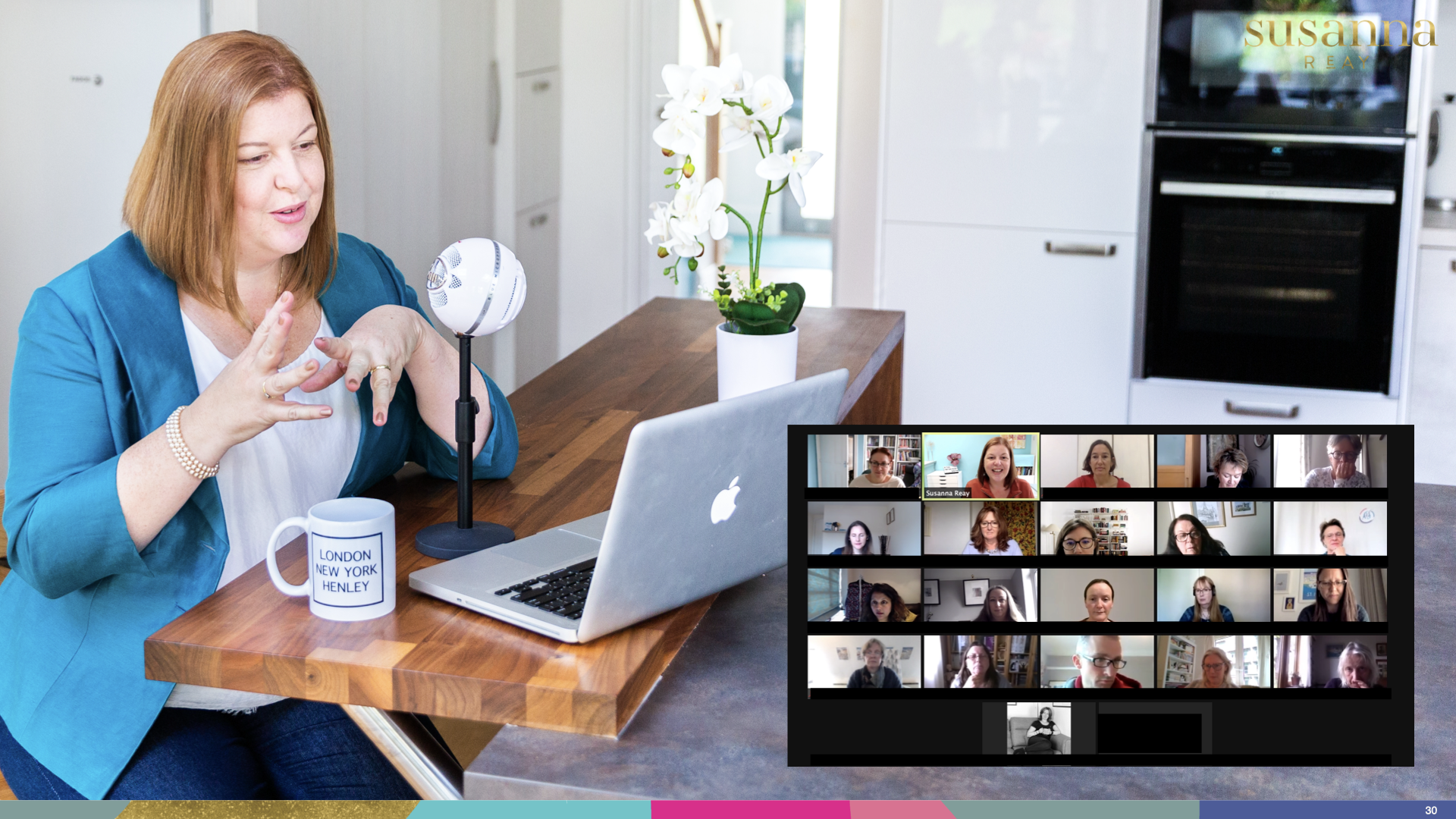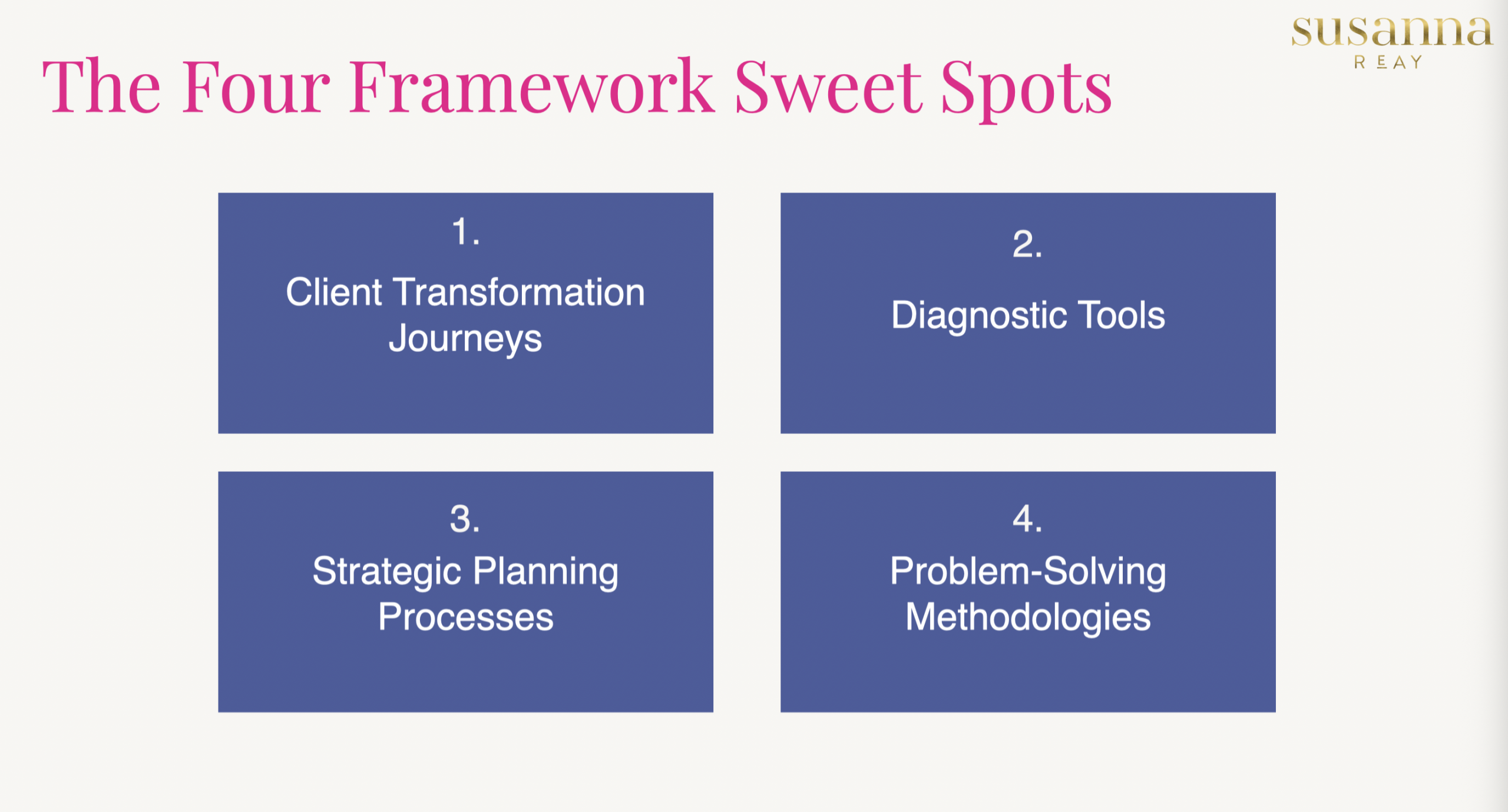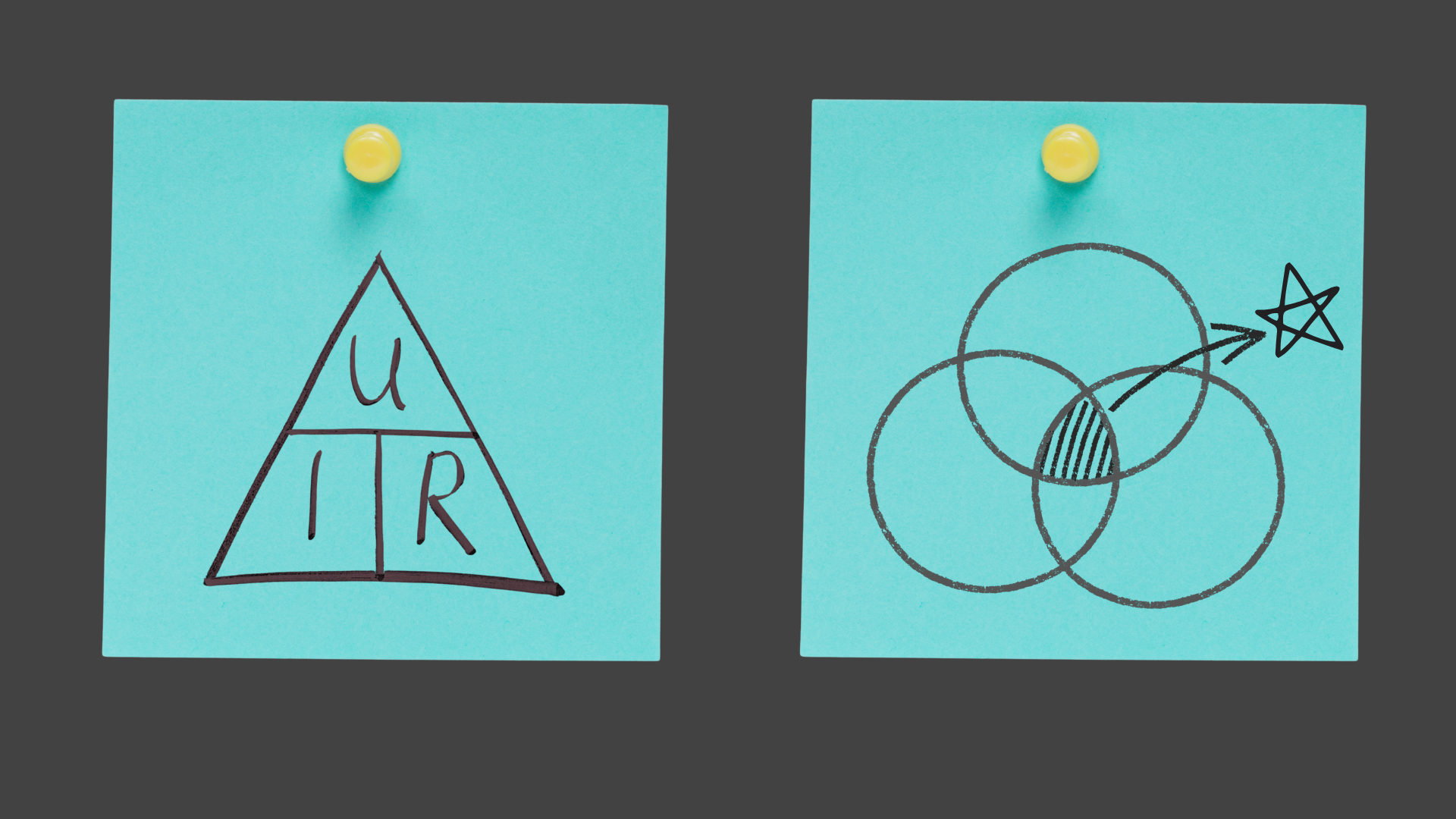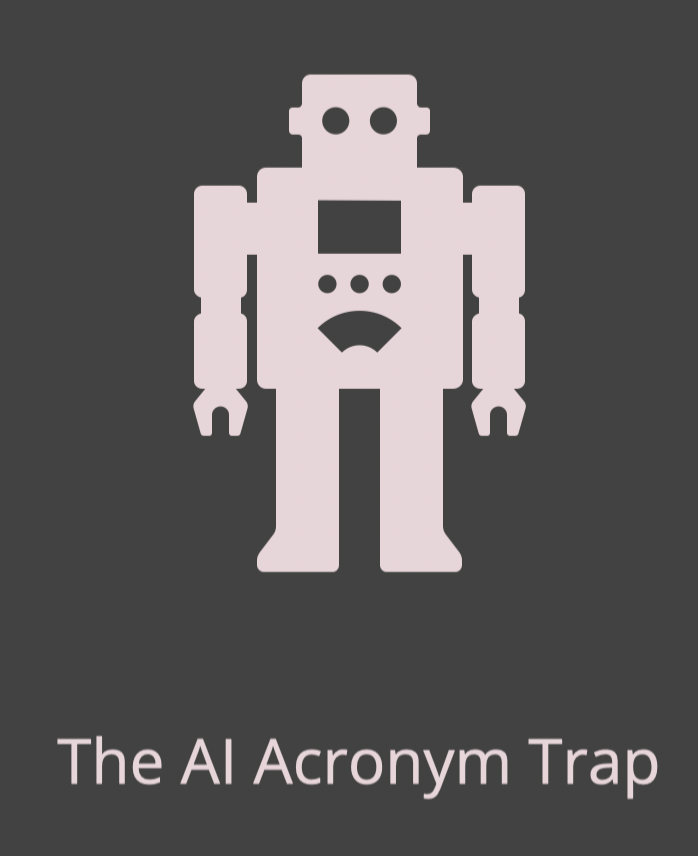Why the smartest business owners have stopped borrowing other people's methodologies and started building their own.
There's a moment in every expert's journey when you realise you've been playing someone else's game. You've mastered the frameworks, applied the methodologies, and executed the strategies - yet something fundamental is missing.
You're brilliant at what you do, but your expertise feels scattered, impossible to scale, and frustratingly difficult to communicate. I know this feeling all too well.
After 22 years of building businesses across four countries, I discovered that the path to authority isn't found in applying other people's methodologies: it's in extracting your own.
Key Insights: The Framework Thinking® Revolution
Traditional framework thinking focuses on consumption - applying existing models to solve problems.
Framework Thinking® represents a fundamental shift: turning your expertise into intellectual property that sells, scales, and sets you apart.
Core Transformation Principles covered in this article:
- Creation Over Consumption: Stop using other people's frameworks, start building your own
- Visual Authority: Your brain processes visuals 60,000x faster than text
- Scalable Expertise: Create intellectual property that works when you're not in the room
- The Post-It Test: If you can't sketch it simply, it's too complex for clients
- Four Framework Categories: Transformation journeys, diagnostic tools, strategic processes, problem-solving methodologies
The Revelation That Changed Everything
During a February 2019 mastermind call, my client Dana voiced a frustration I'd heard countless times: "I've been sharing my expertise, but I've got no engagement. People just say 'I need to think about it' and walk away."
That moment crystallised everything for me. I'd been hiding my visual frameworks behind the scenes; it was a bit like I was hiding the Mona Lisa in the basement. So on impulse, I shared a visual framework I'd developed to help clients identify their position in the transformation journey that I took them on.
The response to seeing this was immediate and electric. "How do we create something like this for our businesses?" became the unanimous question.
That sixty-minute session spawned what became my signature methodology and revealed a fundamental gap in how we think about frameworks in business.

Principle 1: Understand the Framework Thinking® Distinction
After 22 years of building businesses across continents, what strikes me most about successful experts is something crucial: most are approaching frameworks backwards.
Traditional "framework thinking" focuses on consumption; applying existing models like SWOT analysis, the Five Forces, or Design Thinking to solve problems. It's about becoming a better thinker by using other people's intellectual property.
Framework Thinking represents a fundamental shift from this traditional approach.
It's not about thinking better with existing frameworks: it's about turning your expertise into intellectual property that sells, scales, and sets you apart.
Where traditional framework thinking asks "How can I apply this model to my problem?", Framework Thinking asks "How can I extract the brilliant methodology already in my head and make it visible to the world?"
Principle 2: Recognise Your Four Framework Categories
What becomes evident when studying established thought-leaders is that expertise typically falls into four framework categories:
- Client Transformation Journeys: Step-by-step processes that move clients from current state to desired outcome.
- Diagnostic Tools: Assessment frameworks that help identify problems, opportunities, or optimal approaches.
- Strategic Planning Processes: Systematic methodologies for decision-making, goal-setting, or strategic development.
- Problem-Solving Methodologies: Structured approaches to addressing specific challenges or creating specific results.

The key is identifying which resonates most naturally with how you already work. Know that you already have brilliant frameworks in your head, it's just you haven't crystallised them yet. The challenge isn't creating something new from scratch, it's extracting and systematising what you already know works.
Principle 3: Shift from Visibility-First to Authority-First
The challenge facing most service providers is building visibility first: posting daily, networking aggressively, broadcasting achievements, hoping authority will follow. But this visibility-first approach creates what I call "one-hit wonders" rather than lasting success.
True authority works differently. It starts with intellectual architecture so compelling that recognition becomes inevitable.
Traditional Approach: "How do I get more followers? How do I get featured in more publications?"
Framework Thinking® Approach: "How do I create something so valuable that others naturally want to reference, teach, and build upon it?"
When your framework becomes the go-to solution for a specific transformation, media seeks you out. Conference organisers pursue you. Partners want to collaborate with you. You stop chasing opportunities and start choosing between them.
Principle 4: Leverage the Psychology of Visual Authority
Human brains process visual information 60,000 times faster than text. When your methodology is translated into an elegant visual form, you're leveraging this neurological advantage to build immediate credibility.
Your framework should tell the complete transformation story within seconds: no lengthy explanations required. This isn't about creating pretty pictures; it's about cognitive efficiency. When prospects can instantly grasp your approach through visual representation, they move from confusion to clarity in moments.
But here's what makes Framework Thinking truly powerful: great frameworks become teaching tools that clients use to educate their own teams. This multiplication effect transforms your methodology from a service offering into industry standard practice: the ultimate authority position.
When we visualise expertise, we don't diminish value: we amplify it.
Principle 5: Apply the Post-It Test for Framework Simplicity
Success leaves clues: Every coach, consultant, or creative professional has developed patterns: ways of thinking, approaching problems, and creating transformation that are uniquely theirs. The difference between those who struggle to scale and those who build authority empires lies in one critical factor: the ability to make their invisible expertise visible.
Through what I call "framework sketching," you can extract these patterns systematically, as you answer a set of questions that define how the visual will look. The rule is simple: if you can't sketch your methodology on a post-it, it's too complex for your clients to implement.

This process serves multiple purposes:
- Your framework gets real-world testing immediately
- Current clients benefit from your evolving thinking
- You're building authority through demonstration rather than declaration
- You create intellectual property that scales beyond your time
Principle 6: Avoid the AI Acronym Trap

What becomes evident when studying framework development is a consistent backwards approach by experts too eager for quick fixes. They think: "I'll choose a catchy acronym, then build pillars around it."
This surface-level thinking crumbles the moment you're working with real clients. The "LEAP" methodology created by asking AI to suggest words starting with L-E-A-P isn't grounded in your lived experience; it's generic intellectual property that could apply to anyone.
With this approach, you've eradicated the essence of you.
True Framework Thinking starts with your proven expertise, then finds the elegant structure that makes it teachable and scalable.
Principle 7: Treat Framework Development as Creative Work

The challenge with traditional framework development approaches is treating it like project management: breaking tasks into lists, scheduling activities, measuring progress through completion rates. This administrative mindset misses a crucial point: framework development is creative work that requires mental clarity and innovative thinking.
The quality of your framework depends more on the mental state you bring to its development than the hours you allocate. Your framework deserves your best thinking, not your leftover energy.
Framework development often triggers internal resistance that has nothing to do with time management. This resistance emerges because framework development represents a significant identity shift: you're moving from being an expert who applies general knowledge to being the expert associated with a particular methodology.
The Path Forward: From Scattered Expertise to Systematic Authority
What becomes clear is that sustainable authority isn't built on shortcuts. The entrepreneurs who create lasting impact are those willing to do the deep thinking work that others avoid.
The question isn't whether AI can create frameworks, it certainly can produce mnemonic-style frameworks efficiently, and it can even create outlined visuals in your brand.
The question is whether you're prepared to do the intellectual work that makes those frameworks genuinely transformational.
Your expertise already contains the seeds of brilliant frameworks. The challenge isn't creating something new from scratch; it's extracting and systematising what you already know works, then presenting it in a way that's memorable, teachable, and shareable.
Framework Thinking isn't just about becoming a better thinker: it's about transforming scattered expertise into systematic authority that positions you as the go-to expert in your field.
The entrepreneurs who embrace this approach don't just build businesses; they create intellectual legacies that influence industries long after they're gone.
The real question is: What framework is already in your head, waiting to change your industry?
Susanna Reay helps service-based business owners transform their expertise into authority-building frameworks. She holds the UK trademark for the term 'Framework Thinking®' and has built businesses across four countries over 22 years.
